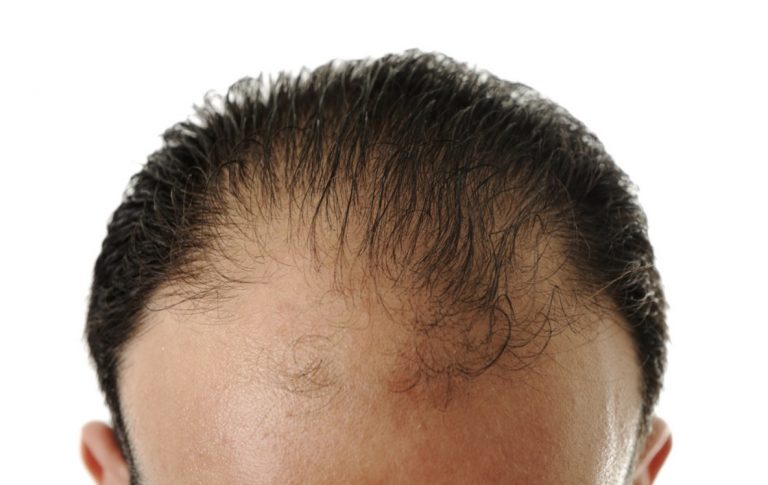Hair loss is a common concern for millions of people worldwide, affecting individuals of all ages and genders. While some hair shedding is normal, excessive hair loss can be distressing and may indicate an underlying issue. Understanding the root causes of hair loss and exploring effective treatment options can help individuals regain confidence and take control of their hair health.
Genetic Hair Loss
One of the most common causes of hair loss is genetics. Androgenetic alopecia, commonly known as male or female pattern baldness, is hereditary and affects a large portion of the population. This type of hair loss occurs when hair follicles become sensitive to dihydrotestosterone (DHT), a hormone that causes miniaturization of the hair follicles over time. While genetic hair loss cannot be entirely prevented, treatments such as minoxidil, finasteride, and hair transplant procedures can help manage its progression.
Hormonal Imbalances
Hormonal fluctuations can significantly impact hair growth and lead to thinning or shedding. Women may experience hair loss due to pregnancy, menopause, or conditions like polycystic ovary syndrome (PCOS), which affects hormone production. Similarly, thyroid disorders, including hypothyroidism and hyperthyroidism, can contribute to hair thinning. Addressing the root cause through hormone therapy, dietary changes, or medications prescribed by a healthcare professional can help regulate hair loss associated with hormonal imbalances.
Stress-Induced Hair Loss
Excessive physical or emotional stress can trigger a condition called telogen effluvium, which causes a significant amount of hair to enter the resting phase and eventually fall out. This type of hair loss is often temporary and occurs after stressful events such as surgery, illness, or extreme emotional distress. Managing stress through relaxation techniques, a balanced diet, and proper self-care can promote hair regrowth over time.
Nutritional Deficiencies
A lack of essential nutrients can lead to hair thinning and shedding. Deficiencies in iron, vitamin D, biotin, and protein are particularly linked to poor hair health. Since hair follicles require proper nourishment to function optimally, maintaining a well-balanced diet rich in vitamins and minerals is crucial for healthy hair growth. In some cases, doctors may recommend supplements to address specific deficiencies.
Overuse of Hair Products and Styling
Frequent use of heat-styling tools, harsh chemical treatments, and tight hairstyles can weaken hair strands and contribute to hair loss. Repeated chemical exposure from hair dyes, relaxers, and bleaching agents can cause significant damage over time. To prevent hair breakage and loss, individuals should opt for gentle hair care routines, minimize heat exposure, and use protective products designed to nourish and strengthen hair.
Medical Conditions and Medications
Certain medical conditions, such as alopecia areata, lupus, and autoimmune diseases, can cause hair loss by attacking the hair follicles. Additionally, some medications, including chemotherapy drugs, antidepressants, and blood thinners, may have hair loss as a side effect. Consulting a healthcare professional is essential for determining the best course of action in managing hair loss associated with medical conditions or treatments.
Hair Transplant Surgery as a Solution
For individuals experiencing significant hair loss, hair transplant procedures have become a viable solution. Follicular Unit Extraction (FUE) and Follicular Unit Transplantation (FUT) are two popular methods that involve transplanting healthy hair follicles from one area of the scalp to another. These procedures have gained popularity due to their high success rates. According to Gitnux, hair transplant procedures have a 90% satisfaction rate among patients. However, individuals should be prepared for post-op symptoms, as mild itching, numbness, and tingling may occur within the first one to two weeks after an FUE transplant.
The Role of Hair Stylists in Hair Health
A professional hair stylist can play a crucial role in maintaining hair health and preventing further damage. With over 270,999 hair stylists currently employed in the United States, according to Zippia, many professionals specialize in hair care routines tailored to different hair types and concerns. Regular trims, scalp treatments, and personalized hair care recommendations can help individuals manage hair loss more effectively.
Hair loss can be a distressing experience, but understanding its common causes and available treatments can make a significant difference. Whether due to genetics, hormonal imbalances, stress, nutritional deficiencies, or medical conditions, various solutions can help manage hair loss and promote regrowth. From adopting healthier hair care habits to exploring medical treatments like hair transplants, individuals have multiple options to address their hair concerns. Seeking professional advice from dermatologists, hair specialists, or stylists can further enhance the journey toward healthier, fuller hair.


0 Comments